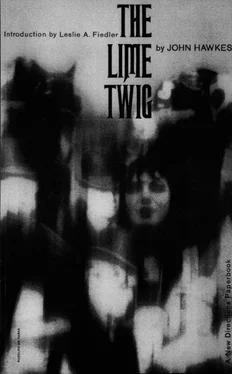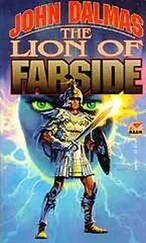The asparagus was boiling finally when the telephone rang. She groped, found the instrument in the hallway, did not let the receiver touch her ear. “Yes?” And even after the first words were spoken the bell continued to ring, a mad thing ringing and ringing, trying to rouse the darkened flat.
“… the telephone’s broken,” she whispered into the cup, and her hand was shaking. Then it went out of her head suddenly, and there was only the dark terrible dustiness in the hall.
“Margaret?”
“Michael, is it you?”
“It is. Have you turned down the stove?”
“I think so, Michael.”
“And the water off?”
“I think so.”
“Good.”
“Are you all right, Michael?”
“We’re going up,” and the voice was fainter now. “We’re going up for the Aldington. There’s a hundred thousand in it. …”
“I want to come,” she said.
There was a pause. And then: “I’ve thought of that. There’s always the train. You come by train. Tonight.”
“Annie might join me if I asked her.”
“Come alone. Just come alone.”
“Yes, Michael.”
After another pause: “You’re the dear,” he said softly in the dark with traces of tenderness, and she heard the click and a child wailing somewhere down the row.
“You’re the dear,” she repeated to herself in the kitchen. But she had not turned off the stove and the asparagus was burned. She put a little water in the pot and left it. An hour later she locked the flat, went down the stoop, signaled a high-topped taxicab to carry her to the train at Dreary Station. Hurrying she gave no thought to people on the streets. She was a girl with a band on her finger and poor handwriting, and there was no other world for her. No bitters in a bar, slick hair, smokes, no checkered vests. She was Banks’ wife by the law, she was Margaret, and if the men ever did get hold of her and go at her with their truncheons or knives or knuckles, she would still be merely Margaret with a dress and a brown shoe, still be only a girl of twenty-five with a deep wave in her hair.
A wife would always ride through the night if she were bidden. Would ride through rainstorm, villages like Wimble, through woodland all night long. All of it for Michael’s sake: the station, the sign at the end of the village, the cart with the single suitcase on it, the lantern swinging beyond the unfamiliar spout, the great shadows of this countryside. It was a lonely transport, there was a loose pin under her clothes. And in this world of carriage seats, vibrations, windows rattling, she stared at the other passenger, at the woman who had called something out to her in Dreary Station and followed her aboard the train.
A sudden roll of smoke passed the windows and she saw herself, and her eyes ached and already she had been in her clothes too long. But the crostics would be waiting when she returned. “What have you done with the kiddies, Mrs. Banks?” asked the woman again.
Beyond the lights of crossings it was dark, the trees bent away from the train, and Margaret felt the wobbling tracks running over the ties, and each tie crushed under the wheels became a child. Children were tied down the length of track: she saw the toads hopping off their bodies at the first whisper of wheels, the faint rattling of oncoming rods and chains, and she saw the sparks hitting the pale heads and feet. Then the steam lay behind on the tracks and the toads returned.
“Done with them?” Margaret said. “I’ve done nothing with them. There aren’t any children.”
The handle was rattling on her valise — she had not put it in the rack — and her toes pressed against a sooty pipe. Her brown skirt was drawn down completely, cloth over anonymous knees and heavy calves. In her hand was the pink ticket. She sat backward with her shoulder blades to the whistle engine, and looking out the window, she feared this reversed and disappearing countryside.
“Oh,” said the woman and flattened her paper, “I thought you’d probably parked them with your mother.”
“No. I didn’t do anything like that.”
“Weren’t you ever parked when you were a child?”
“I don’t remember. …”
“I was. I remember it,” said the woman. “I was parked out more than I was home. For me there was nothing at the window, I used to eat my hands in the corner.”
“I don’t remember much of when I was a child,” said Margaret. She noticed then a dead wasp suspended between the window’s double sheets of glass. The train turned sharply and the overnight bag fell against her leg.
“Well,” the woman spoke up above the noise. “Well,” and coldly she reached a hand toward Margaret, “it used to be parking out for me.” The woman paused, steadied herself, the train hissed round the turn. “But that’s past. Now it’s my sister leaves her kids with me of a weekend or summer. And I’m at the good end, now.”
“All summer long?” asked Margaret.
“Some years, she does. I encourage it.” And Margaret saw the wheels flattening the heads and feet.
A signal flashed. A yellow light then red, and levers, long prongs, pig-iron fingers worked in rust out there. The train swayed and stale water splashed in the decanters. The train smelled like the inside of an old man’s hat — smelled of darkness, hair, tobacco — and the steam was up and she saw a car with its tiny lamps like match heads off in the blackness at a crossing. Were they merely waiting in the car? Or had the hand brake been set and were they kissing? Margaret felt the soot sifting into her bosom, she was breathing it down her nostrils. She wanted a wash.
“How old are they? Your sister’s, I mean … her little children.”
“Oh, young,” said the woman, and Margaret looked at her. “But not so young they won’t remember when they’ve grown. …” There were smells coming off the woman too, smells that lived on her despite the odor of coke and burning rails. Smells of shoe black and rotting lace, smells that were never killed by cleaning nor destroyed by the rain. The woman’s strong body, her clothing, her hatpins and hair — all were greased with the smells of age.
“Monica’s in the middle. Seven. She paints her nails.”
“It’s a nice name,” said Margaret, and looking up, saw the woman’s eyes like a female warden’s eyes, black, almost beside each other, set into tiny spectacles with tweezers.
There were coffins in the baggage car and all through the night she smelled the cushions with their faint odor of skin tonic and old people’s basketry and felt the woman watching her — wide-awake — and it was dark and stifling, a journey that made her muscles sore. The light began to swing on its cord.
The train had stopped. The door handle went down suddenly — after how long, she thought. Then the door opened and she saw the figure of a man who was standing on some country station ramp with the steam round his legs and a wet face. Margaret saw the night behind the man, heard the far-off ring of spanners or hammer heads against the locomotive’s high black dripping wheels at the front of the train. The man was big, heavy as a horse cart of stone; there was not a wrinkle in his trenchcoat over the shoulders, his chest was that of a boxer. He blocked the door, held it, and his head came through. Hatless, dark hair, large straight nose. In one hand was a cigarette and he flicked the ash quickly into the skirts of his coat, as if he had no business smoking on the job. He swayed, leaned, his neck was red. He looked at the woman, and then at her; there was a movement in the dark eyes.
“All right now, Little Dora?” Nerve ends crossed in his gray cheek, it was a low conservative voice for kindness or bad weather.
“Right enough,” said the woman without moving her hands. Her chin was squared. Then: “But I could do with a smoke,” she added, and turned her spectacles toward Margaret.
Читать дальше












